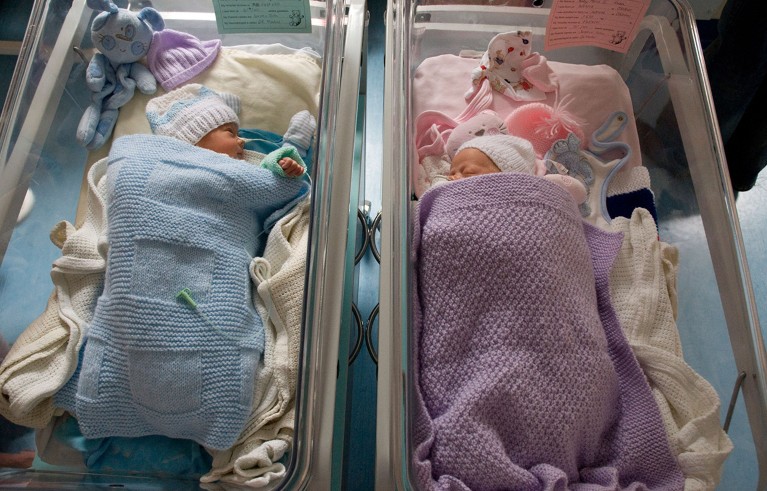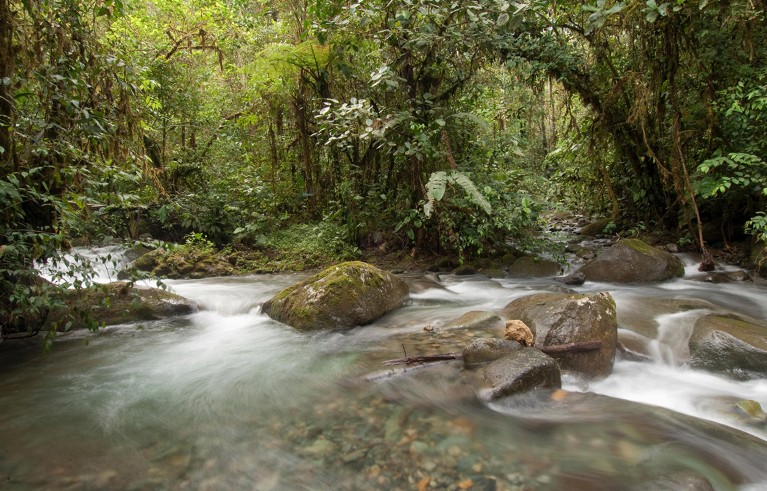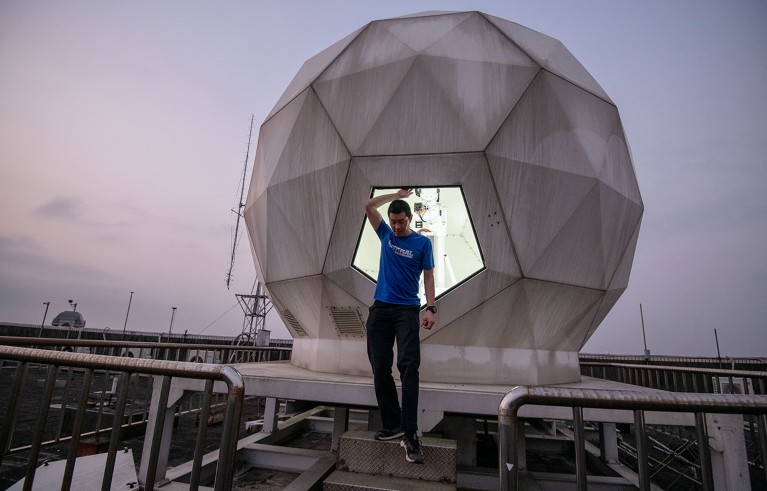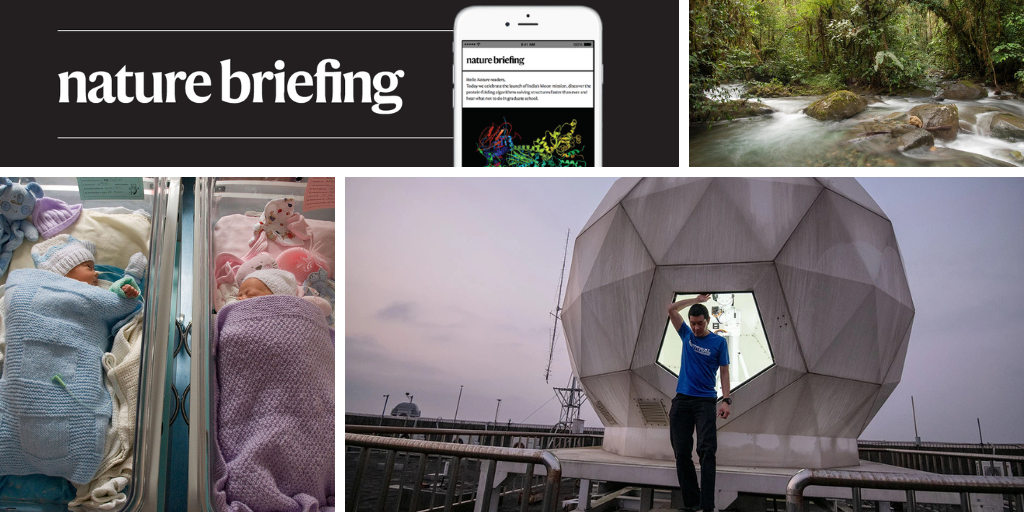You have full access to this article via your institution.
Hello Nature readers, would you like to get this Briefing in your inbox free every day? Sign up here.

Study finds that some women carry genetic variants that are associated with having children of a particular sex.Credit: Jennie Hart/Alamy
In a study of children born to more than 58,000 women over almost 60 years, researchers found that the sex of a baby can be influenced by having several siblings of the same sex. For example, in families with three boys, there is a 61% chance that the next baby born will also be male. Maternal factors such as changing vaginal pH and certain genetic variants could explain the phenomenon, the authors say. There could also be paternal influences, says epidemiologist and study co-author Siwen Wang, which weren’t assessed in the research.
Reference: Science Advances paper
Some bottlenose dolphins (Tursiops aduncus) use a sponge to flush camouflaged fish out from the seafloor. The sponge protects their nose while the animals probe the sand for hidden meals, but there’s a catch: it interferes with the echolocation the dolphins use to navigate. The trade-off might explain why the skill is so rare — researchers found that sponge hunting is unique to a small pod of dolphins in Western Australia. It’s “like hunting when you’re blindfolded — you’ve got to be very good, very well-trained to pull it off,” says marine biologist Mauricio Cantor.
Reference: Royal Society Open Science paper
“The last six months have seen rapid and wasteful changes which have undermined our mission and caused catastrophic impacts on NASA’s workforce,” says a declaration signed by more than 280 NASA employees past and present, including at least 4 astronauts. The declaration also urges the acting head of NASA not to make the unprecedented budget cuts proposed by the administration of US President Donald Trump. The Voyager Declaration joins similar protest documents by employees at other US federal agencies, including the National Institutes of Health and the Environmental Protection Agency — where more than 100 signatories to a dissenting document were placed on administrative leave as punishment.
The United States has recorded around 1,300 cases of measles this year — more than in any year since the disease was declared eliminated in 2000. But the number of cases is nearly three times higher in Canada, despite a population eight times smaller. The situation there shows that measles poses a threat beyond the influence of US health secretary and high-profile vaccine sceptic Robert F Kennedy Jr. On both sides of the border, outbreaks took hold in undervaccinated Mennonite communities where the COVID-19 pandemic eroded already-shaky trust in the health-care system.
Meanwhile, at the heart of a recent outbreak in West Texas that killed two people and spread to multiple US states, public-health experts are reflecting on lessons learnt. These include the importance of gathering detailed data on cases, and accommodating vaccine worries by emphasizing testing and treatments alongside the jab.
BBC | 7 min read & The Texas Tribune
If you fancy engaging with vaccine hesitancy in your inner circle, brush up with experts’ evidence-based tips for how to have helpful vaccine chats (Nature | 10 min read or watch the 3 min video)
Features & opinion

Los Cedros, the ‘Forest of Cedars’, in Ecuador is protected under nature’s rights law.Credit: Minden Pictures/Alamy
Rivers are born, evolve and die, and can bring life — and death. We might respect them more if we saw them as animated by spirits of their own, writes Andrew Robinson in his review of Is a River Alive? by Robert Macfarlane, a Wellcome Collection exhibition called Thirst and an accompanying collection of essays. Macfarlane writes that the living nature of rivers was self-evident to him as a child — a perspective that he had to fight to regain as an adult who had been raised on rationalism. “It requires unlearning, a process much harder than learning,” he writes.
For some parents of children with rare diseases, a diagnosis is the impetus to start a biotech company. For example, Terry Pirovolakis swapped a career in information technology for work on a gene therapy for his son, who has a progressive neurodevelopmental condition. Throwing yourself into finding a cure can offer hope and a way to channel their energy, say those who’ve done it. But it’s a bumpy road: Pirovolakis’s efforts led to a promising therapy, but with such a small market, no profit-making organization wanted to take it forward — even for free.
Where I work

Loren Chang is a scientist at the Center for Astronautical Physics and Engineering at the National Central University in Taoyuan City, Taiwan.Credit: Dave Tacon for Nature
Astronautical engineer Loren Chang designs satellites and other scientific machinery to explore the environment of space. “We can communicate with spacecraft in Earth’s orbit only when they are in our direct field of view; the rest of the time, the Earth blocks the signal,” he says. “We have only two windows a day for direct communication, and each is typically less than ten minutes.” That means the team must build space systems that can work autonomously the rest of the time. (Nature | 3 min read)
On Friday, Leif Penguinson was taking a dip at Dip Falls in Tasmania, Australia. Did you find the penguin? When you’re ready, here’s the answer.
Thanks for reading,
Flora Graham, senior editor, Nature Briefing
With contributions by Jacob Smith
• Nature Briefing: Careers — insights, advice and award-winning journalism to help you optimize your working life
• Nature Briefing: Microbiology — the most abundant living entities on our planet — microorganisms — and the role they play in health, the environment and food systems
• Nature Briefing: Anthropocene — climate change, biodiversity, sustainability and geoengineering
• Nature Briefing: AI & Robotics — 100% written by humans, of course
• Nature Briefing: Cancer — a weekly newsletter written with cancer researchers in mind
• Nature Briefing: Translational Research — covers biotechnology, drug discovery and pharma


